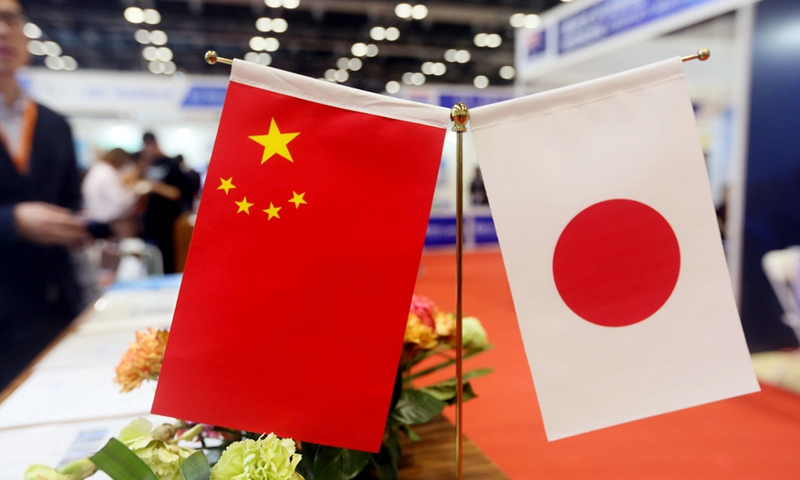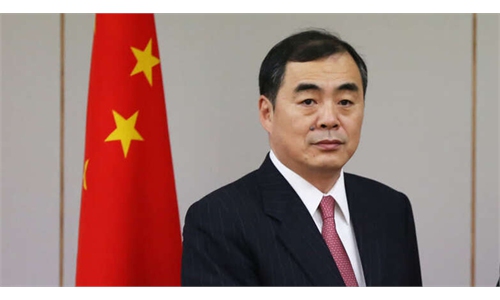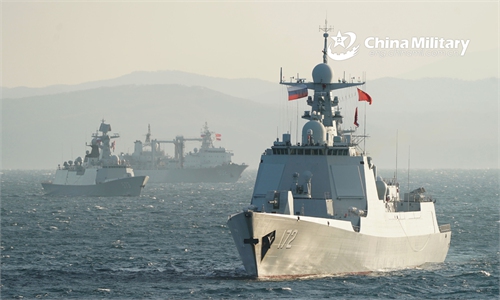Survey shows most Japanese don't want Tokyo to take sides in China-US rivalry
Over 50% of Japanese respondents don't want Tokyo to take sides

China Japan Photo: IC
A poll on China-Japan relations showed that a majority of the respondents in both countries cited US pressure as an obstacle for China-Japan ties amid the backdrop of China-US competition, while more than half of Japanese respondents said their country should not "pick sides," far exceeding those who preferred to side with the US.
The results of the 2021 China-Japan relations public opinion survey were released in Beijing and Tokyo on Wednesday.
The annual survey, started in 2005, has become a key channel for the two countries to understand public opinions on the other side and promote mutual understanding. This year's survey was jointly conducted by China Foreign Languages Publishing Administration and a Japanese think tank, Genron NPO, from late August to late September in the two countries.
Respondents in both China and Japan had high recognition of the importance of bilateral ties, and showed consistence in concerns over regional cooperation and coping with global challenges.
Some 70.9 percent of Chinese respondents and 66.4 percent of Japanese respondents said that China-Japan bilateral relations "are important."
Chinese respondents expressed high praise for Japan's successful holding of the Tokyo Olympics amid the global pandemic.
Gao Anming, deputy head of the China Foreign Languages Publishing Administration, said at the press conference held to release the survey that Chinese respondents held a more positive image of current bilateral ties and the future development of the ties than their Japanese counterparts.
Among Chinese respondents, 32.1 percent had a "very good" and "relatively good" impression of Japan, down 13.1 percentage points from 2020. Those with a "relatively bad" or "bad" impression of Japan rose to 66.1 percent from 52.9 percent in 2020.
Irresponsible remarks and moves by some Japanese politicians have reduced the goodwill of the Chinese public toward Japan, hindering the development of bilateral ties, Gao told the Global Times at the press conference.
Two weeks after taking office, Japan's new Prime Minister Fumio Kishida pressed two hot buttons on the same day on Sunday - sending a ritual offering to the infamous Yasukuni Shrine, and claiming that the Fukushima wastewater release cannot be delayed, despite opposition from home and abroad.
The ups and downs of China-US relations have had an increasingly prominent impact on China-Japan ties.
More than 60 percent of the Chinese respondents and more than 50 percent of the Japanese respondents said the China-US rivalry have had a negative impact on China-Japan relations, the survey showed.
The most popular choice of the respondents in both countries was "to minimize the impact of the China-US competition and promote China-Japan cooperation."
Yasushi Kudo, founder and president of Genron NPO, said at the press conference via video that more than 40 percent of the Japanese respondents believed that Japan should promote cooperation with China, regardless of China-US tensions.
Gao said despite negative external factors, people in both China and Japan hope to control those factors and foster more self-driven, firm and resilient China-Japan ties.
The impact of history, as well as territorial and security issues, are still prominent factors affecting the psychological status of the two countries on bilateral relations.
The survey showed that 80.6 percent of Chinese respondents and 56.4 percent of Japanese respondents viewed history as a major problem in China-Japan relations, while 62.4 percent of Chinese respondents and 56.7 percent of Japanese respondents regarded territorial disputes as the most important issue hindering the development of China-Japan relations.
Compared with 2020, respondents from both countries felt a stronger sense of threat from the other's military presence, with an increase of 13.4 percentage points of Chinese respondents and an increase of 7.1 percentage points of Japanese respondents, Gao said.
In terms of regional affairs in Asia, the denuclearization of the Korean Peninsula, China-Japan maritime and air crisis management, energy conservation and environmental protection were the main concerns of respondents from both sides.




